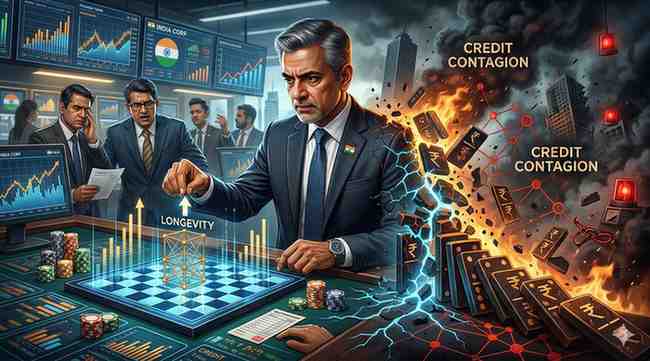
Are We Asking the Right Questions About Our Faith?
- admin
- August 28, 2025
- Philosophy, World View
- 0 Comments
Blind Faith or Thoughtful Inquiry? Is Our Faith Evolving or Stagnating?
Faith has long been a cornerstone of Indian society, providing guidance, comfort, and a sense of purpose to millions. Whether rooted in Hinduism, Islam, Christianity, Sikhism, or other traditions, faith shapes how individuals perceive the world and their place within it. However, in the rapidly changing world of the 21st century, a critical question emerges: Are we asking the right questions about our faith, or are we simply adhering to traditions without truly understanding their relevance today?
The Tradition of Unquestioning Faith
For centuries, faith in India has often been treated as an unquestionable constant, passed down through generations. The teachings of religious leaders and sacred texts have formed the bedrock of spiritual life. Pew Research Center’s 2023 report found that 79% of Indians identify with a religion, highlighting the enduring importance of faith. Many religious practices are deeply embedded in the social fabric, with rituals, customs, and festivals providing a sense of belonging.
However, this unquestioning adherence to tradition can sometimes stifle personal exploration and critical thinking. Dr. Sudhir Kumar, a professor of philosophy, argues, “Faith, when left unquestioned, can become an obstacle to personal growth. It is not enough to follow blindly; one must understand and evolve.” This is particularly evident in the way some religious practices, such as caste discrimination or gender inequality, continue to persist despite the changing values of modern India.
The Rise of Individual Inquiry
As India becomes increasingly connected to the global conversation on social justice, science, and secularism, many are beginning to question long-held beliefs. Young Indians, in particular, are increasingly seeking answers to the questions that religion may not have addressed. According to the 2023 National Youth Survey, 45% of Indian youth stated that they questioned traditional religious teachings and sought to create a more personal spiritual practice.
Social media, access to global ideologies, and exposure to scientific advancements have encouraged individuals to reassess their understanding of faith. This generation is more inclined to challenge religious practices that conflict with principles of human rights, gender equality, and secularism. The growing debate over religious rituals, gendered norms, and the caste system reflects a broader questioning of the relevance of traditional beliefs in the modern age.
The Challenge of Balancing Faith and Progress
The challenge, however, lies in balancing faith with progress. While questioning old norms can lead to positive change, it can also create tension between individuals and their communities. In a diverse society like India, religious beliefs are not just personal choices—they are often central to social identity. Challenging certain practices can lead to social ostracism, as seen in the 2019 Sabarimala case, where a legal ruling permitting women of menstruating age to enter the temple led to strong protests from religious groups who viewed this change as an attack on their faith.
Religion in India, often intertwined with politics and social hierarchies, complicates this challenge. Religious nationalism has become more prominent, with many viewing challenges to traditional practices as an attack on cultural identity. A 2022 study by the Indian Rationalist Association found that 40% of Indians felt that questioning religious practices undermined national unity, highlighting the difficulty of navigating change in a country where faith is both a personal and political matter.
The Role of Spiritual Leaders in Reimagining Faith
Amidst these challenges, many spiritual leaders are urging a reexamination of faith to ensure that it evolves with the times. Sadhguru, Ravi Shankar, and other contemporary spiritual thinkers emphasize that spirituality should be about personal growth, connection with the divine, and compassionate action, rather than rigid adherence to outdated customs. Sadhguru, in particular, advocates for a form of spirituality that is inclusive, adaptable, and deeply connected to individual experiences and the changing world.
Conclusion: The Need for Thoughtful Inquiry
As India moves into the future, it is clear that we must ask more profound and thoughtful questions about our faith. Are our beliefs helping us grow as individuals and as a society, or are they limiting our potential for change? Faith is not static—it should evolve with our understanding of the world, driven by critical inquiry and a commitment to truth and justice.
It is time for individuals, communities, and religious leaders to engage in honest dialogue about the role of faith in the modern world. By asking the right questions, we can ensure that faith continues to be a source of personal and societal transformation, rather than a barrier to progress.
Disclaimer: All statistics and findings are sourced from credible publications, including the Pew Research Center, National Youth Survey, and the Indian Rationalist Association.



